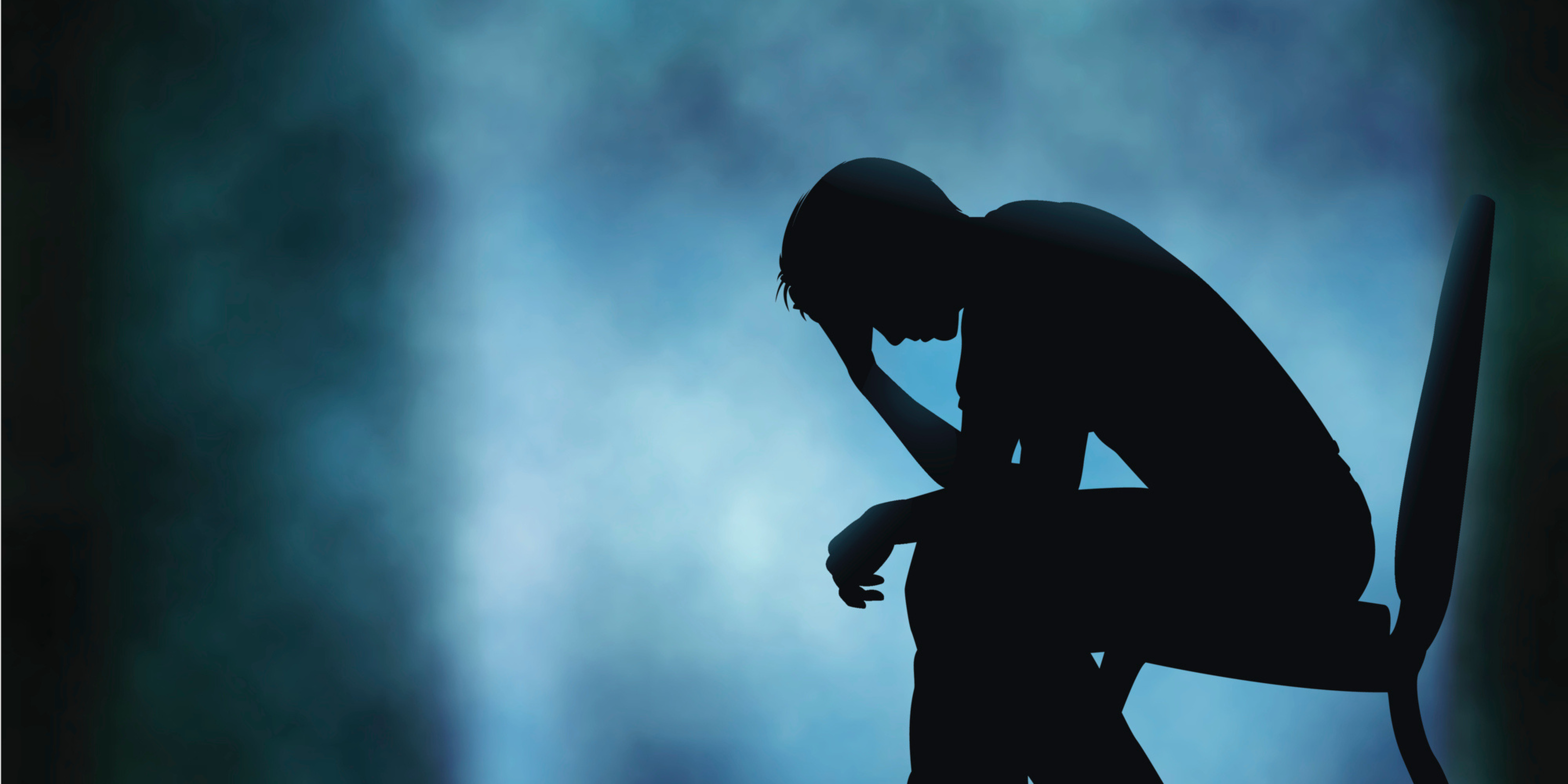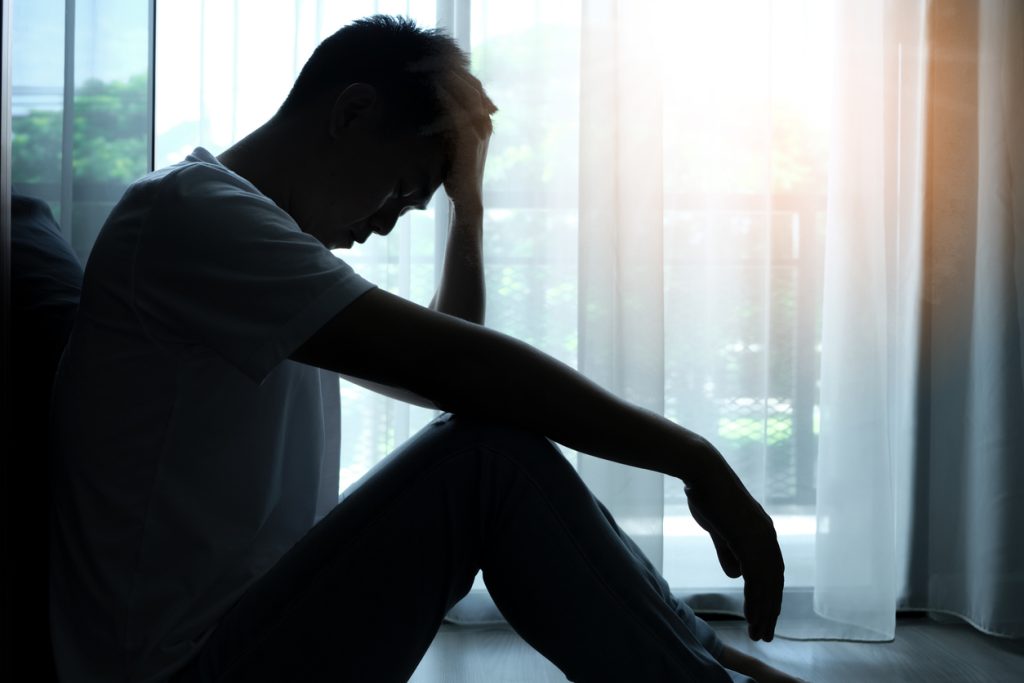Testosterone is an androgen, or sex steroid hormone, produced in the testes that is responsible for the growth and development of male sex organs and secondary sexual characteristics like facial hair and a deep voice. It also controls and maintains several important body functions in men, such as sperm production, sex drive, bone density, red blood cell production, muscle mass, fat deposition, and mood regulation.
Normal levels of testosterone are vital to ensure a healthy male reproductive system, as well as to protect against depression, anxiety, and low mood. Testosterone is intricately linked with mental health and evidence from studies associates testosterone deficiency with poor psychological states and cognitive problems, especially in older men. Studies on men who are middle-aged or older have shown that there is a correlation between lower testosterone levels and a higher likelihood of developing cognitive decline, dementia, and Alzheimer’s disease.
What is Testosterone Deficiency?
It is natural for men to lose testosterone as they age. But a sudden and drastic decline in T levels suggests something wrong in the body. Testosterone deficiency can be considered a clinical diagnosis when total testosterone levels fall below 10 nmol/L and there are accompanying signs and symptoms to suggest hypogonadism (low testosterone and decreased sperm production). Around 25% of Canadian men between the ages of 40 and 62 years are estimated to have testosterone deficiency and younger men are increasingly presenting to clinics with signs of the condition.
Symptoms of testosterone deficiency
Someone with low T may experience a combination of the following:
- Low libido (loss of interest in sex)
- Difficulty ejaculating
- Weaker and fewer orgasms
- Erectile dysfunction
- Loss of spontaneous and morning erections
- Infertility
- Fatigue
- Gynecomastia (abnormal enlargement of breasts)
- Decreased muscle mass
- Hot flashes
- Weight gain (especially fat)
- Shrinking testes
- Hair loss (pubic, armpits)
- Anemia/ pallor
- Mood changes
- Poor concentration
- Insomnia
- Lower bone density (weaker bones prone to fractures)
Causes of Testosterone Deficiency
Primary
As the majority of the body’s testosterone is produced by the Leydig cells of the testes, any condition or life event that affects the testes results in primary hypogonadism:
- Genetic disorders (Klinefelter syndrome, Noonan syndrome)
- Chemotherapy
- Radiotherapy
- Infection (mumps)
- Autoimmune diseases (Addison’s)
- Antiandrogen drugs (spironolactone, cimetidine)
- Cryptorchidism (undescended testes)
Secondary
Testosterone production is controlled by the hypothalamic-pituitary-gonadal (HPG) axis. The hypothalamus produces the Gonadotropin-releasing hormone (GnRH) which signals the pituitary gland to release Luteinizing Hormone (LH) and Follicular Stimulating Hormone (FSH). FSH and LH initiate spermatogenesis and testosterone release. Secondary causes of hypogonadism are due to any condition that disrupts the HPG axis and affects testosterone levels:
- Idiopathic hypogonadotropic hypogonadism (of unknown adult onset)
- Acute illness (e.g. HIV)
- Prader-Willi syndrome
- Pituitary gland disorders
- Iron overload
- Cushing syndrome
- Obesity
- Aging
- Liver damage
- Steroid or opioid use
- Nutrient deficiency (zinc, magnesium, vitamin D)
The Connection Between Testosterone and Mood
Studies have shown that in men experiencing a state of depressed mood, the secretion of testosterone can be impaired. This can occur even if the person does not have clinical depression. Similarly, when there is a significant decline in testosterone levels in men their cognitive abilities and other brain functions can be adversely affected.
There is considerable overlap between the psychological manifestations of hypogonadism and the presentation of depression. The similarities and differences between the signs and symptoms of low testosterone and depression are summarized below:
| Low Testosterone | Depression | |
| Similarities | Fatigue
Low mood Irritability Decreased libido Sleep problems Memory loss Trouble concentrating Anxiety |
Fatigue
Low mood Irritability Decreased libido Sleep problems Memory loss Trouble concentrating Anxiety |
| Differences | Low testosterone levels
Breast swelling Decreased muscle mass Headaches uncommon Hair thinning and hair loss Suicidal thoughts rare |
Normal Testosterone levels
No breast change Weight loss or gain Headaches commonly present No specific hair symptoms Suicidal thoughts common |
What the Science says about testosterone and Mental Health
T levels and depression risk
Measuring testosterone levels could be a way to identify depression risk in both men and women. Studies have shown that both high and low levels of testosterone have been linked to depression, at least in men. A study from Finland examined data on 4,253 men and 5,102 women from the United States National Health and Nutrition Surveys (NHANES) to study the link between total testosterone and specific depression symptoms. In men, a lower level of testosterone is associated with higher chances of developing depression.
In a sample of over 3,000 men between the ages of 40 and 79 years from the European Male Aging Study, it was discovered that psychological symptoms such as low energy, sadness, and fatigue were more commonly reported among those with testosterone deficiency. The frequency of symptoms increased with decreasing levels of the hormone.
Depression subtypes and low testosterone
Researchers believe that testosterone might only be linked to specific depression symptoms, (e.g. low mood and loss of appetite) or different depression subtypes (atypical, melancholic) which may explain why previous studies have had different results. Studies demonstrate an association between low T and certain subtypes of depression such as atypical depression (characterized by mood changes to positive events, and excessive eating, sleeping and weight gain). Men with the other depression subtype, melancholic, release lower levels of testosterone in the early morning suggesting a connection between melancholic depression and low testosterone concentrations depending on the time of measurement.
Testosterone and anxiety
Testosterone plays a part in men’s sense of well-being. Men with higher levels of natural testosterone have been observed to have lower levels of anxiety and less neurotic personality traits such as emotional instability, self-doubt, and irritability. Testosterone has the ability to decrease the body’s response to stress, reducing the likelihood of negative mood states. A study from Norway indicated that among 3,413 men surveyed, those with the lowest total testosterone levels scored high for anxiety symptoms compared to those with higher testosterone levels. This highlights the potential role that the hormone plays in regulating emotional responses and overall mental health.
TRT restores well-being
In practice, testosterone replacement therapy (TRT) has been effective in alleviating psychological symptoms of hypogonadism. Scientists from Canada and Ireland recently conducted a systematic review and meta-analysis of 138 studies which showed that testosterone therapy is related to improvements in quality of life, libido, depressive symptoms, and erection issues in men with hypogonadism.
Another review of 27 randomized placebo-controlled clinical trials found that testosterone replacement therapy significantly reduced depressive symptoms in men. The participants who received higher treatment doses showed the most substantial decrease in symptoms. A long-term TRT trial on hypogonadal men using testosterone gel for over 3 years proved that along with other benefits, positive mood changes that were observed were consistently maintained for the duration of treatment.
These results suggest that testosterone treatment in men with clinically diagnosed hypogonadism might have the added advantage of helping men with depressive symptoms. This, however, does not mean that TRT should be considered as a treatment for depression or depressive symptoms with or without hypogonadism before proper consultation from a licensed doctor.
Disclaimer:
The opinions shared in this article belong to the author and, like all content on Gambit’s Health Hub, should not be considered a replacement for professional medical advice, diagnosis, or treatment. If you have any health-related inquiries, consult with your preferred healthcare professional or visit a licensed, Canadian physician through Get Gambit for a supported condition.
This article has been medically reviewed by:
Dr. Taneer Ahmed, MBBS, MS

